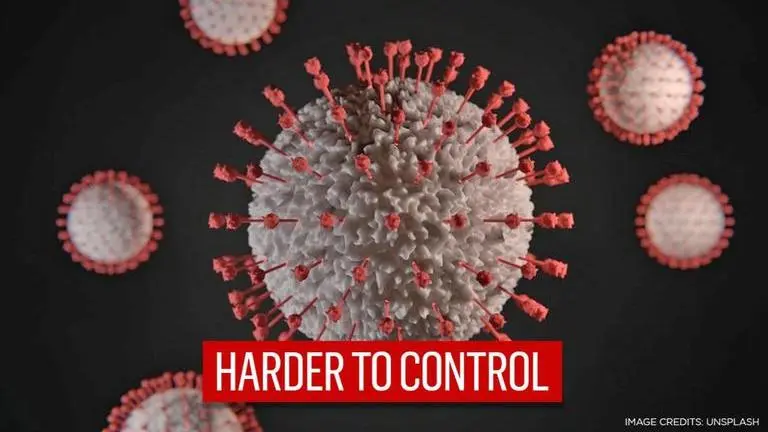Updated 12 October 2020 at 14:42 IST
COVID-19 survives on smooth surfaces for 28 days, harder to control in winter: Study
A study suggests that the SARS-CoV-2 is “extremely robust” as it survives for 28 days on smooth surfaces at room temperature or 20 degrees Celsius
- Lifestyle News
- 3 min read

A study titled as ‘The effect of temperature on persistence of SARS‑CoV‑2 on common surfaces’, published in the journal Virology suggests that the SARS-CoV-2 is “extremely robust” as it survives for 28 days on smooth surfaces at room temperature, or 20 degrees Celsius. It was further concluded that the coronavirus stays for a longer time in cooler weather, which will make it hard to control in winter. As a part of the study, survival rates of infectious SARS-CoV-2 were examined.
COVID-19 stays on surface for 28 days
The study suggests that all the experiments were conducted in the dark. This was done to nullify the effects of the UV light. The study says, “Inoculated surfaces were incubated at 20 °C, 30 °C and 40 °C and sampled at various time points”. Substances like the Australian polymer banknotes, de-monetised paper bank notes and common surfaces including brushed stainless steel, glass, vinyl and cotton cloth were used in the study. Polymer and paper bank notes were included to study ‘to gather information on the possible roles of note based currency in general for the potential for fomite transmission’.
However, glass was picked up due to its mass presence in public areas, steel because of its use in kitchen and public facilities. Vinyl was used due to its use in ‘social settings, tables, flooring, grab handles on public transport, as well as mobile phone screen protector material’. Lastly, cotton was picked up due to its vast use in clothing.
Director of ACDP, Professor Trevor Drew said, "How long they can survive and remain infectious depends on the type of virus, quantity, the surface, environmental conditions and how it's deposited -- for example touch vs droplets emitted by coughing. Proteins and fats in body fluids can also significantly increase virus survival times."
(Image Credits: link.springer.com)
(Image Credits: link.springer.com)
Advertisement
As a part of the study, all the selected surfaces were cut into 1–1.5 cm coupons. Then, non-porous surfaces were disinfected using a detergent, distilled water and then immersing in ‘80 per cent v/v ethanol’. It was concluded that at a temperature of 20°C, SARS-CoV-2 virus was still detectable after 28 days post inoculation, for all non-porous surfaces tested (glass, polymer note, stainless steel, vinyl and paper notes).
Debbie Eagles, Deputy Director of Australian Centre for Disease Preparedness said, "At 20 degrees Celsius, which is about room temperature, we found that the virus was extremely robust, surviving for 28 days on smooth surfaces such as glass found on mobile phone screens and plastic banknotes".
The study read, “The recovery of SARS-CoV-2 on porous material (cotton cloth) was reduced compared with most non-porous surfaces, with no infectious virus recovered past day 14 post inoculation. The majority of virus reduction on cotton occurred very soon after the application of virus, suggesting an immediate adsorption effect”. Also, at 30 °C, infectious virus recovered in 7 days from stainless steel, polymer notes and glass, and 3 days for vinyl and cotton cloth.
Advertisement
(Image Credits: Pixabay)
Published By : Akanksha Arora
Published On: 12 October 2020 at 14:43 IST


